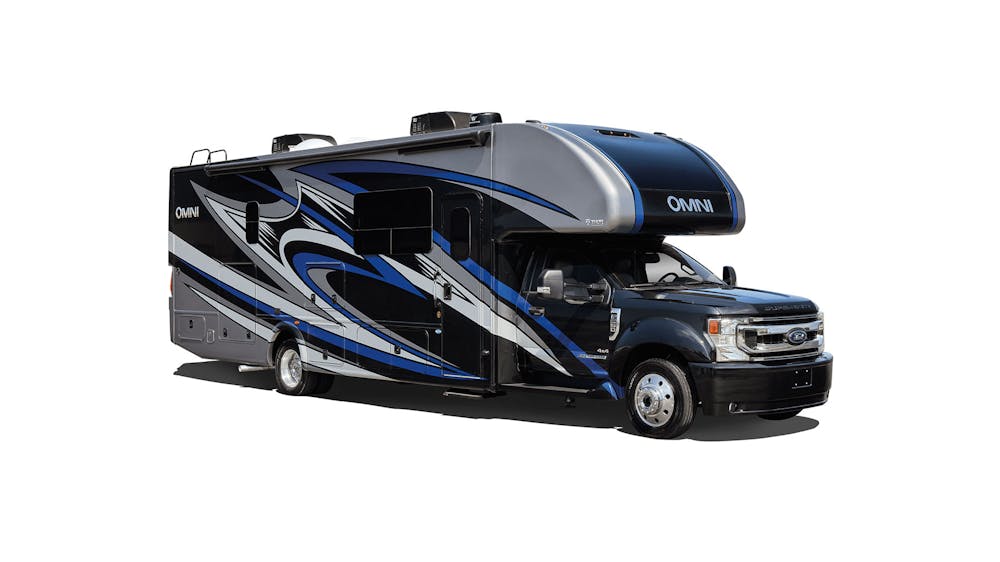
Can I Afford to Own an RV?
It can be daunting to consider owning an RV. How much will it cost? Are there hidden costs I should consider? It’s tricky! I will tell you; we tried to look into renting to see if we could physically drive it, take care of it and be comfortable.
How much does it cost to rent an RV?
When we started researching RVs, we discovered that it would be a good trial run to rent first; however, there was a considerable deposit and extra fees to have dogs in a rental unit. The average rental unit Class C from a dealer near us is $200 per night, plus gas, plus food, plus your site location cost, which would have been roughly $500 extra on top of the regular rental fees. If you add up everything, for a couple and dogs, it would be about $1400 to rent, $200 in gas depending on where you are going, $350 in food, $500-1000 for site location, and $500 cleaning deposit for pets, including a $200 flat fee for traveling with pets when you return it. Altogether, that is about $3000 for a one week, seven-day vacation. For a couple with no animals, trying out different RVs through renting first may be a good option, but it wasn’t for us.
Finding an RV in Budget with “Must-Haves”
With that option out the window, my husband and I started doing some research on the different styles, sizes, and amenities we wanted to make our trips comfortable and worthwhile. We watched many YouTube walkthroughs of the other RVs and made a “must-have” list to start shopping for an RV that would fit our budget and needs. There are not many options for RV dealers in our area, so we drove to Akron, Ohio, to our closest dealer to do the first walkthrough. Our first day of walkthroughs lasted all day – literally. We walked through every class A, B, and C that they had to offer. Our thought process was, “Let’s look at everything to see what is too much and not enough. After picking what we think suits us, we’ll research customer reviews, potential problems and issues that can arise during ownership.”
RV Costs to Consider
Consider Your Family’s Size
After two or three walk-throughs, we decided on a small 27-foot Class C with no pop-outs. This RV was a good start, as we have never driven anything more significant than an SUV, and we were not sure if we could master the driving portion. We found out that the smaller one was not the right choice, as it was too small, and with two adults and three big dogs, it was a cramped living arrangement.
Consider RV Repair Costs
Following a long two week trip to Devils Tower in Wyoming, we looked into trading in our small RV for a bigger RV. We still opted for the Class C RV due to the ease of repair. For example, we had to replace a front window after someone hit it with a rock. While this was an unexpected expense (and we only had to pay our deductible of $500), insurance covered it. Still, if it were a Class A (to replace a full front window, it can run up to $2000), we would have had to take it to a specialist to replace the window, rather than any service center in our area. These considerations were important to our purchase.
Don’t Forget the Unexpected Repairs
Our current RV is the 31-foot Class C Quantum with one full-wall pop-out. Some of the unexpected expenses we ran into include replacing a vent cover after it was damaged by flying debris from a semi (around $20) and replacing the water heater electronic ignitor board after it died, which was about $150 because I installed it myself. It would have been $350 if done by a professional. We found that we needed extra lengths of hose for water or sewage, which cost between $15-20 depending on which one you purchase, and some miscellaneous parts for some other small repairs. Something else to consider and something we decided to purchase after buying our RV were solar panels, which were between $200-300.
Insurance Costs
Another cost to consider is vehicle insurance for your RV and a towable vehicle if needed. We have elected to have full coverage on our RV and car as an extra precaution for any issues. Our insurance's total cost is about $65 each for the RV and car per month, which is about $130 per month for auto insurance. One thing that is important to talk to your insurance broker about, which will impact your cost, is where you are parking your RV when not in use. If your family elects to park the RV at another location, not on your own property, you have to carry additional insurance.
RV Gas Costs
A common concern is, “How much will I spend on gas?” That will be different for everybody, of course, but I can tell you about our experience. The RV we chose is a Class C gas option, rather than diesel. On average, we get roughly 450 miles per tank of gas, which is approximately 8 miles per gallon of gas with a 55-gallon tank (not letting it get below a quarter tank, just in case). So let’s consider a more extended trip, let’s say from Ohio to Wyoming. What would that cost? The journey is about 1500 miles one way. It would take four fill-ups to get to Wyoming, a total of about $100-175 to fill up each time. Generally speaking, this is not too bad in terms of cost; it depends on how far you travel and where you get gas. (There might be a big difference in gas prices between Alaska and Ohio. The cost would probably be much higher in Alaska.)
RV Storage Costs
Another big consideration is winter storage, or where you will park your RV during the “off-season.” If you are lucky like we are, you will have the availability to park on your property, which will not cost you anything. If you aren’t able to do that, storage fees will be necessary. To store the RV in an offsite location, indoors with security, an average cost to pencil in is around $90 per month. On average, we will store the RV between December and March; if you were to do the same, it would be $360 per year.
Cost Considerations for Full-Time RV Living
Finally, there is one more significant expense to consider if you plan to become a full-time RV family, which is health insurance. If you are fortunate enough to have a full-time job that provides insurance as you travel, you are in luck because that is a considerable expense. Likewise, if you have hit retirement age and can get Medicare or Medicaid as your insurance, the cost will be minimal.
On the other hand, if you are like my husband and I (who will be hopefully starting the full-time adventure in just under five years), you will be responsible for obtaining health insurance out of pocket. In case you are wondering, the cost of health insurance out of pocket (according to my accountant) is roughly $1500 per person per month for the year. So you can see that this expense is a major one to consider before leaping to full-time RV living. Also, if you need to go to the doctor, even for minor issues like a cold or flu, you would be paying out of pocket, which will add up quickly.
Can I Afford to Own an RV?
This brings me back to the most important question: Can I afford to own an RV? The simple answer is yes! Any person or family can afford to own an RV if you consider why you want to own one in the first place. For our family, we were willing to give up certain amenities like material objects (big TVs, closets full of clothes we don’t need or wear, a huge yard we have to cut every weekend) to invest in our happiness freedom of the open road.
As a potential buyer, I would say your best option is to do your research and have a conversation with your family. Go to your local dealer and do a walkthrough of as many RVs as possible to see its options. Sit in the driver’s seat and see how it feels (the first time sitting in a Class A is a little strange because it is different from a typical car). Finally, make a list of must-have items, including sleeping areas, technology, washer and dryer, oven, etc. Take a good look at your household budget, deciding what to cut out (dining out) and what is a must-have (electricity). With a little bit of planning, your family can also own your very own home away from home.
New to RVing? Check out our free Owners Guide.
Questions? Comments? Contact our Coach Link® Sales Advisor.
Are you searching for local inventory? We offer a convenient Dealer Locator.
